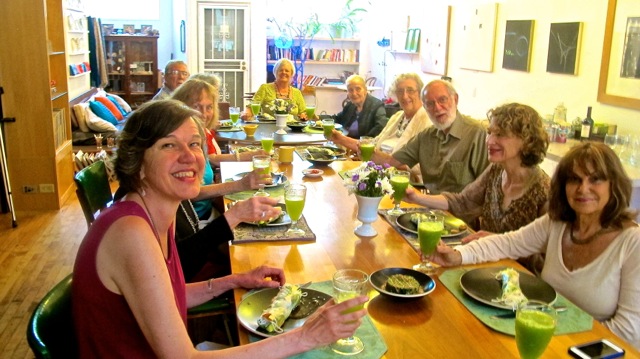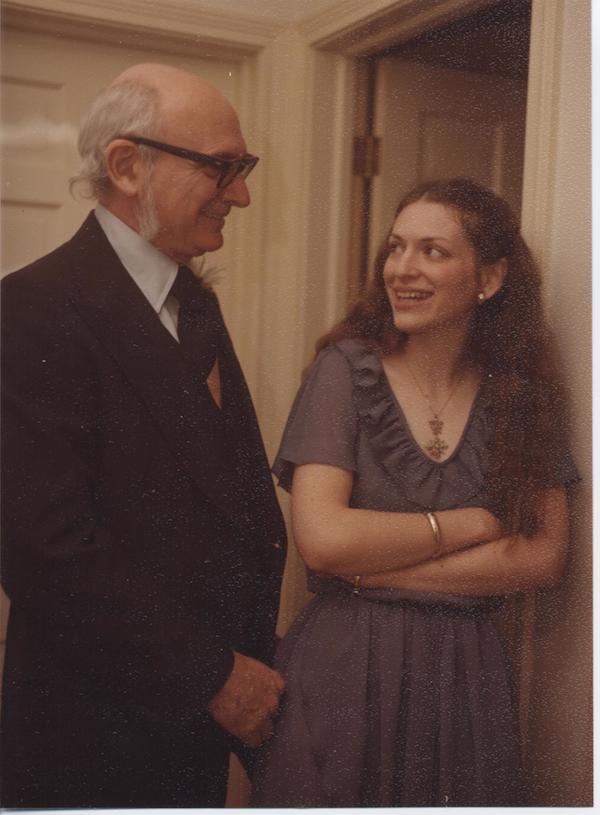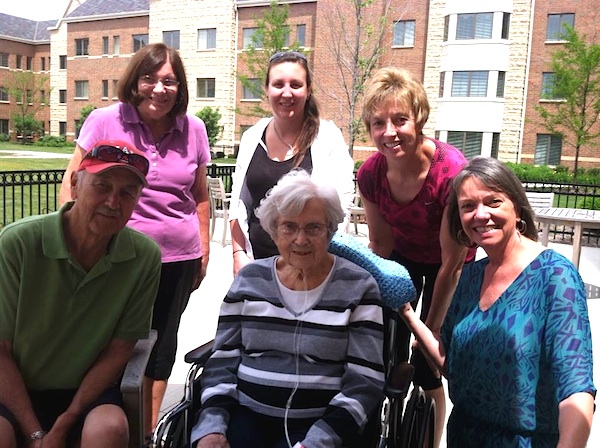The writers in the three memoir-writing classes I lead are between 55 and 95 years old. As far as I know, none of their mothers are still alive, so I wondered what their reaction would be when I gave my writing topic for Mother’s Day last month: One Thing I Didn’t like about My Mother.
“Only one thing?”” a few of them asked with a laugh. “You’re limiting us to one? Others fell on the other side of the spectrum. “I’m the victim of a happy childhood!” one likes to say. This second group didn’t think they could come up with anything they didn’t like about their mothers. Not one single thing.

All three of my memoir classses are on a short summer hiatus now –one class met at Anne and Bruce Hunt’s house Monday for our final session.
My writers aren’t quitters, though. They thought long and hard about this topic,<!–more–>
and so many of them came back with thoughtful, moving and sometimes funny essays that I had a hard time deciding which ones to highlight in this blog post.
I mean, sure, I got some angry essays, and some sad ones, too, but these memoirists are looking at things from an adult perspective now, and it was touching to hear how forgiving, or at least understanding, they are of their mothers.
Sheila and her siblings grew up with an abusive father, and as a child she always wondered why their mother didn’t stick up for them. “Growing up, I didn’t understand why she was so whiny and passive,” she wrote. “As an adult, I can better appreciate what might have made her that way.” Another writer only lived with her parents full-time until she was five years old. They were missionaries and left the United States to save souls on foreign continents when their daughter started school, leaving her behind at an American boarding school.
I assumed this writer would write that the thing she didn’t like about her mother was that she abandoned her. Instead, she wrote about how her upbringing left her strong and independent, and how a long and bitter divorce taught her that strength and independence isn’t necessarily a good thing. During divorce proceedings, she often wished she was helpless, the type who leans on others. “But that is not in my nature,” she wrote. “Is this a gift or curse that my mother gave me? I don’t know. I am who I am.”
Some writers did choose not to write on this topic at all. One writer’s mother died when he was two days old. I suppose he could have written that he didn’t like her dying in childbirth, but he chose a more lighthearted topic: his mother-in-law!
Long before When Harry Met Sally came out, Kathy’s mother was using her own version of the movie’s famous line.” I’ll have what you’re having,” her mother would say, whether it be a take-out order, a dessert choice, a cup of tea, — almost anything, really. Her mother seemed incapable of making a choice, or perhaps she was afraid of making the wrong choice.
“Why should that bother me so much?” Kathy asked herself in the essay she wrote. “I loved my Mother.” As if to answer her own question, Kathy’s essay goes on from there, spelling out the cultural mores that shaped her mother. “Inez Tiller (Tillie, as she was called), born in 1906 in Tennessee, was shy, sweet, and obedient. She was subservient to parents and her confident older sister, Verlie. Decisions were made for her.”
All decisions except for one, that is. “She confided in me that Daddy never knew how she voted.” Kathy claims the implication was clear. “Inez Wright was a closet Democrat!”
Bruce’s family lived with his paternal grandmother from the time he was seven until he was 13, and they all sat down for formal dinner together each and every night. “The ritual typically began with my father’s making some outrageous claim,” he wrote. “No matter the claim, my mother would listen, wide-eyed and react with something like: ‘Really?’”
All this set off Bruce’s grandmother, a co-conspirator reinforcing his father’s claim with evidence from her own life. “The conversation would proceed with mother protesting from time to time: ‘How can that be?’ Or, ‘Is that possible?’ And occasional outbursts of ‘Really?’”
It wasn’t until the level of fantasy got totally bizarre that his mother would realize it had all been a fabrication. And then, as Bruce so eloquently phrases it, “The rest of us would smirk in a superior way.”
And so, parents of smirky teenagers, don’t despair – kids have been smirking at their parents for multiple generations! And who knows, maybe in 60 years your child will be like Bruce, writing a memoir about how he looks at his mother’s naïveté in a whole different way now.
“Her curse was that she was gullible, but that was her blessing too,” he wrote. His mother was a teacher, and her students, all kindergartners, were just beginning their educational journey. These children trusted Bruce’s mother, and she believed what others said. “She could not imagine a world where that was not the starting assumption,“ Bruce wrote in the conclusion to his essay. “Mother would not have understood the snarky banter of 21st century comedy and news analysis, but she helped a number of young people, including her son, be open to new truths, even when they might be embarrassing.”
So now, how about you? Anything you didn’t like about your mother? Vent about it here, in the comments. and oh, by the way, yes, you *do* have to limit it to just one thing!



